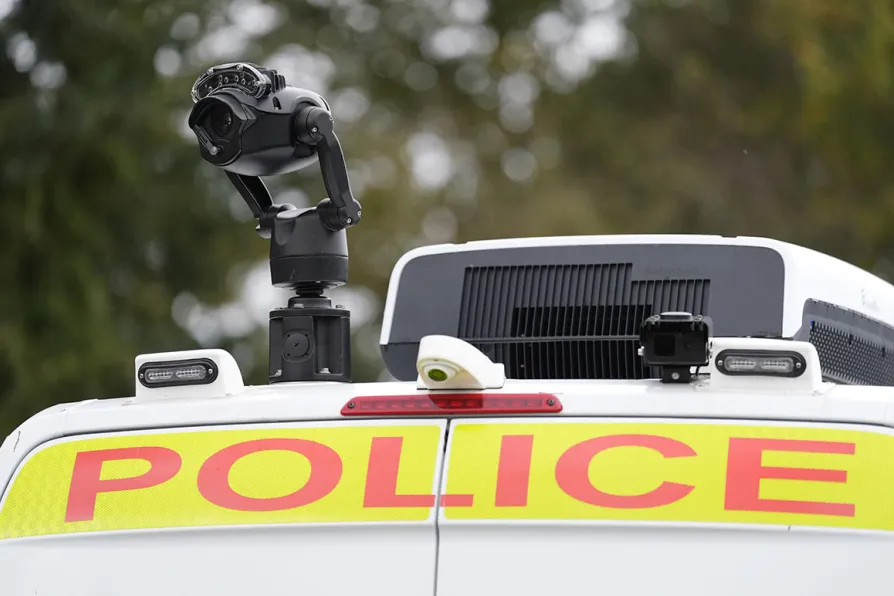
 A camera on top of a Live Facial Recognition (LFR) van during a demonstration of facial recognition technology by Surrey and Sussex Police at Surrey Police headquarters in Guildford, November 11, 2025
A camera on top of a Live Facial Recognition (LFR) van during a demonstration of facial recognition technology by Surrey and Sussex Police at Surrey Police headquarters in Guildford, November 11, 2025
THE expansion of facial recognition will further erode civil liberties and “disproportionately immiserate” marginalised communities, campaigners warned today.
Home Office funding has been provided for the rollout of a new fleet of facial recognition vans across police forces in Greater Manchester, West Yorkshire, Bedfordshire, Surrey, Sussex, Thames Valley and Hampshire.
The technology, already in use across Metropolitan, South Wales, and Essex forces, allows officers to record the surrounding area using cameras mounted on top of their vans.
Police watchlists are uploaded to the van, and if their faces are scanned by the van’s cameras it will alert officers to the match.
Civil groups had previously raised concerns about false readings. Anti-knife crime community worker Shaun Thompson is currently taking legal action against the Met after the technology wrongly flagged him as a criminal.
But Surrey Police chief inspector Andy Hill insisted that there had been “a lot of development” and “a lot of national testing” to give the force confidence in the software.
Habib Kadiri, executive director of Stopwatch which campaigns against police stop-and-search tactics, said: “Judging from police forces’ current use, it seems the expected benefits from use of this technology for public safety will be minimal at best.
“But we know for certain that the spread of these checkpoint-scanning sites will further cement the loss of our civil liberties and the intention to surveil so-called ‘high-crime’ areas will disproportionately immiserate marginalised people in racialised neighbourhoods, while the lack of legal safeguards for its use leaves people living under this new technology open to police abuses of power.”
There is no legislation dedicated to regulating live facial recognition (LFR), with its governance fragmented under decades-old policing laws, such as the Police and Criminal Evidence Act 1984, as well as data and human rights legislation.
Sara Chitseko, from Open Rights Group, said: “We urgently need Parliament to legislate for the use of this intrusive technology to ensure that there is proper transparency and oversight.”














